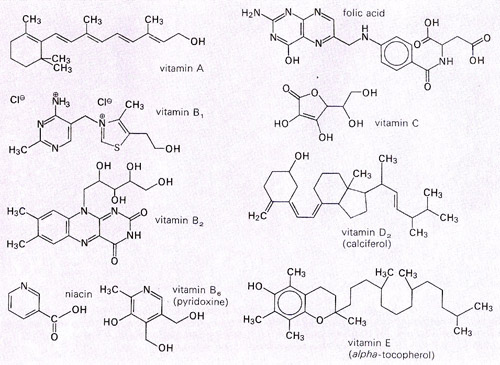Political campaigns use the same trick. Candidates speak about "our campaign," and "our strategy." Often they'll invite voters to "please join us." It's the modern version of the royal We.
Donald Trump, too egotistical to refer to "we" or "us," nevertheless magnifies authority by talking about himself in the third person.
Donald J. Trump is calling for a total and complete shutdown of Muslims entering the United States until our country's representatives can figure out what is going on.Trotskyist organizations are masters at this manner of speaking. They have a raft of authoritative-sounding groups. On my Beat is an otherwise unread journal entitled International Viewpoint. "International Viewpoint is published under the responsibility of the Bureau of the Fourth International." Who knows what the Bureau of the Fourth International is, but it certainly does sound weighty.
Traditionally, Trotskyist grouplets have used the language of Lenin's Comintern: titles like secratariat and political committee. Jack Barnes goes by the title National Secretary of the Socialist Workers Party. "Secretary" has such an anodyne ring to it--hardly befitting a long tradition of mass murderers.
Coincidentally or otherwise, this sort of language is used by the United Nations. And perhaps, if you squint, you'll find it spoken at the European Union.
On my Beat, however, the champion of thundering proclamations is Solidarity. As of today the top three articles on their website are written by the editors of Against the Current, the Solidarity Steering Committee, and an International Statement on Iraq and Syria. The latter is signed by a list of about 30 individuals and organizations from around the world, some of which may have more than a dozen members. (For whatever reason they weren't able to win the concurrence of the Bureau of the Fourth International.)
The International Statement reads like it was written by a committee. It is completely incoherent. As is typical, this proclamation concludes with a list of exhortations. The first one reads "Oppose draconian policies; defend the democratic rights of everyone." Well, that just clarifies everything, doesn't it?
The confusion starts at the top. The opening paragraph reads
We fight dictatorships, imperialist aggression, and Daesh. We reject the politics of “national security,” racism, and austerity. It’s time to mobilise!The dictatorship is the Assad regime. "Imperialist aggression" is sponsored by Iran, Turkey, Saudi Arabia, and Qatar, not to mention Russia, the USA, and European countries. Daesh is, of course, ISIS. In other words, they are against everybody!
Their solution? "Solidarity with democratic and progressive anti-imperialist forces throughout the Arab region." They never specify who those forces are, though presumably they don't include the Free Syrian Army or al-Nusra. One supposes there might be three or four people in Syria who will qualify for such "solidarity." Personally, I'd advise them to get together and form a central committee.
The editors of Against the Current also opine on Syria in a piece entitled Global Lessons of a Catastrophe. There is only one global lesson: it's all our fault. We Americans have disproportionately contributed to global warming, spent too much money on the military, have enabled ISIS, the Assad regime, Turkey, etc., and we invaded Iraq. The people of Syria are absolutely innocent of everything, like children, and bear no responsibility at all for all the death and destruction.
If only we just ceased to exist the world would be a much better place. One way to eliminate us is to let hundreds of thousands of Syrian refugees in to the USA (at taxpayers expense). "No Border No Nation, Freedom of Movement for All" reads a banner in an accompanying photograph. One could add "No Civilization" to that list.
The third piece, by the Solidarity Steering Committee is headlined Facing the Enemy Within. It's about Donald Trump, of course.
An enemy ideology is tunneling within U.S. society, intending to take over and establish its state and social supremacy. Most of the time it moves mainly undercover, but will seize any opportune moment to leap from the shadows and proclaim its aims openly. It is deeply hostile to democratic values, religious (and irreligious) freedom, women’s rights, and racial equality. It’s not something new in our country, but it’s capable of shifting forms and appearances as circumstances permit.I am no great fan of Donald Trump, but I do not believe for a minute that he represents a white supremacist movement. He does defend a way of life, and that way of life deserves to be defended. My disagreement with him is less in his goals but more in the way he proposes to accomplish them. But the Steering Committee is completely off the rails; their proposal is that "white people" should just commit suicide.
The enemy is bigotry and white supremacy.
We live in a Constitutional Republic. It depends for its success on shared assumptions about what government is supposed to do, and on what the rights and obligations of citizens are. It is based on the European Enlightenment of the 17th and 18th Centuries, which in turn derives from a Judeo-Christian-Classical world view. Our Republic depends also on the English language as the universal language of government and public life.
As such, the American way is not a universal solution for all of humankind. While we can easily accommodate modest numbers of Muslims and Hindus and Buddhists, etc., those who come to live in this country have to learn to be Americans. That is, they have to learn English and learn the basics of civic life in these United States.
The American civilization is worth preserving. It cannot survive if there are no borders. The thundering proclamations from the likes of Solidarity need to be rejected.
Further Reading:
